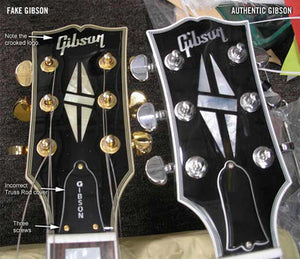Selling counterfeit goods can have serious legal implications, whether intentional or not. Here's a breakdown:
1. Legal Implications of Selling Counterfeit Goods
Civil Liability
-
Trademark Infringement: Counterfeit goods often infringe on trademarks. The rightful trademark owner can sue for damages and injunctive relief.
-
Damages: Courts can award:
-
Actual damages
-
Profits from the sale
-
Statutory damages (up to $2 million per counterfeit mark per type of goods under the Lanham Act in the U.S.)
-
-
Seizure and Destruction: Authorities may seize and destroy counterfeit goods.
Criminal Liability
-
Federal Offense: In the U.S., knowingly trafficking in counterfeit goods is a federal crime under 18 U.S.C. § 2320.
-
Penalties:
-
Fines up to $2 million (for individuals) or $5 million (for corporations)
-
Up to 10 years in prison (first offense)
-
-
-
State Laws: Many states also have laws against counterfeit goods with varying penalties.
2. Can a Pawn Shop Unknowingly Sell a Counterfeit Guitar?
Yes — but there are important nuances.
Good Faith / Lack of Knowledge
-
If the pawn shop genuinely did not know the guitar was counterfeit and had no reason to suspect, they might not be criminally liable.
-
However, ignorance is not always a defense in civil cases. They may still be held liable for:
-
Selling counterfeit goods
-
Misrepresentation
-
Violating consumer protection laws
-
Due Diligence
-
Pawn shops are expected to exercise reasonable care when acquiring and reselling branded items.
-
Failure to verify authenticity could be seen as negligent or willful blindness, increasing liability risk.
Best Practices for Pawn Shops:
-
Authenticate branded items (e.g., serial numbers, appraisals, expert review)
-
Keep detailed records of sellers and transactions
-
Post clear policies about authenticity and returns
In Summary:
-
Knowingly selling counterfeit goods can lead to civil and criminal penalties.
-
A pawn shop can unknowingly sell a counterfeit guitar, but may still face civil liability and reputational damage if due diligence was not done.
Here’s a real-world example that highlights how pawn shops can get entangled in counterfeit goods cases — even when they claim to be unaware:
Case Example: U.S. v. Play It Again Sam’s (California, 2000s)
Background:
-
A chain of pawn shops in California called Play It Again Sam’s was found to be selling a variety of counterfeit branded items, including musical instruments, electronics, and luxury goods.
-
The investigation was led by the Department of Homeland Security and U.S. Customs and Border Protection.
What Happened:
-
Undercover agents purchased counterfeit items from multiple locations of the pawn shop.
-
The items bore counterfeit trademarks from brands like Gibson (guitars), Rolex, and Sony.
-
The pawn shop operators claimed they were unaware that the goods were counterfeit.
Outcome:
-
Criminal charges were filed against the owners and managers.
-
They faced:
-
Fines and forfeiture of merchandise
-
Loss of business licenses
-
Probation and restitution orders
-
-
Authorities emphasized that businesses selling brand-name products have a legal duty to ensure authenticity — ignorance was not accepted as a defense.
Key Takeaways for Pawn Shops:
-
Due diligence is critical. Failure to verify authenticity can lead to both civil lawsuits and criminal charges.
-
Claiming ignorance isn’t enough. Authorities expect businesses to take reasonable steps to avoid trafficking counterfeit goods.
-
Luxury and collectible items (like guitars) are especially scrutinized due to their high value and frequency of counterfeiting.

